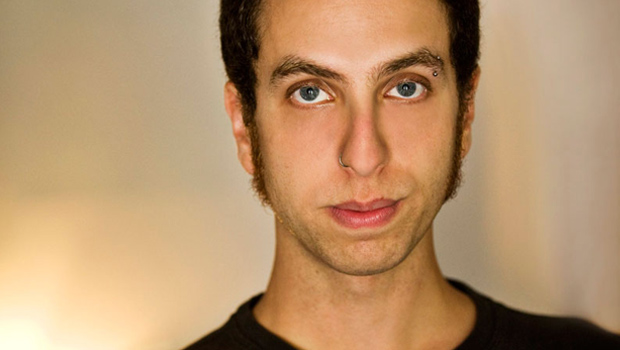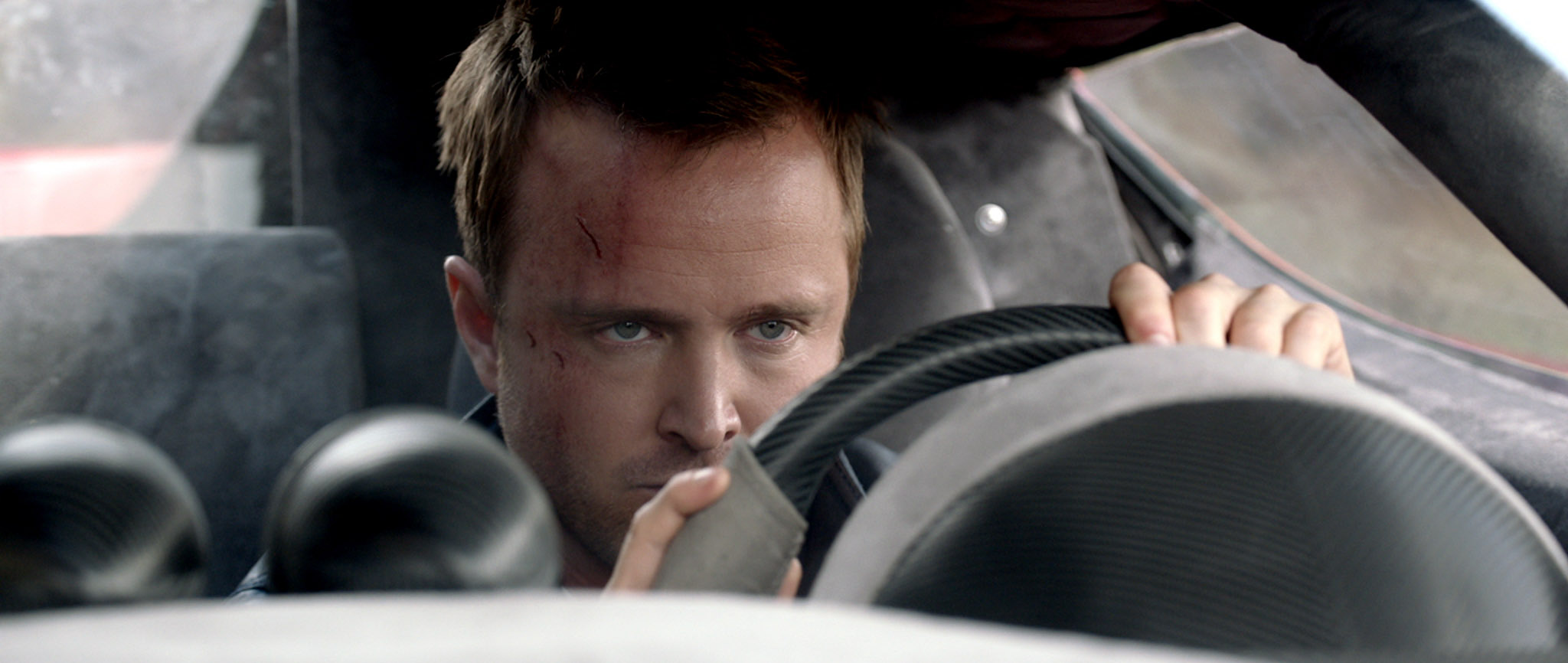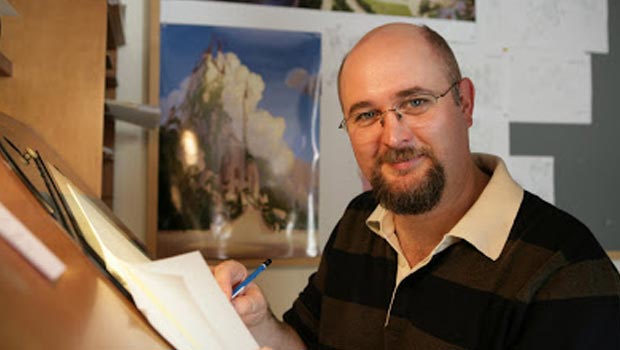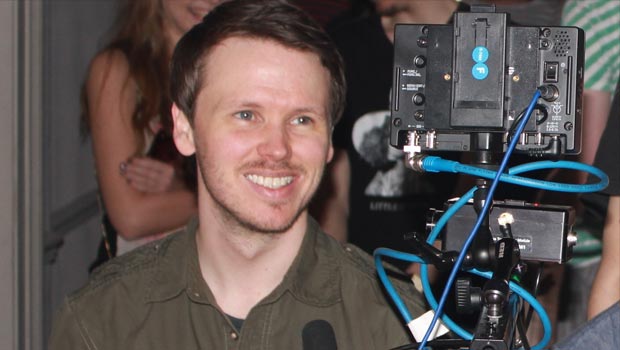Cinema Sauce caught up with Brandon Cronenberg to discuss his debut film Antiviral. The apple certainly doesn’t fall far from the tree, and Brandon has created a creepy and atmospheric little horror film. He sheds a satirical light on the culture of celebrity obsession and explores a not too far off world where fans can purchase the diseases of their idols to infect themselves with. It’s all a bit disgusting but, all in all, is actually a really great film that certainly deserves recognition.
Speaking with Brandon he discusses the inspiration behind the film’s story and what it truly means to be a “celebrity”.
This is probably a question you’ve answered a thousand times, but what was it like growing up with David Cronenberg as your father?
It was fine. I think I had a normal upbringing, but I have nothing to compare it to really but I had a very closely knit family and a happy childhood.
And would you say he influenced you to become a film-maker yourself?
Well, to be honest I actively didn’t want to become a film-maker for a fairly long time, primarily because he was a film-maker. People approached me with a lot of preconceptions. They assumed I was a film-maker and that that was what I wanted to do, which was both obnoxious and off-putting.
What changed your mind about making films, if you initially didn’t want to?
Well, I was trying to be a novelist and I was writing a lot of prose fiction, but at the same time I was doing some visual art and I was playing in bands. I was really interested in all of those things, but at a certain point I guess I realised I couldn’t be good at all of them because you could dedicate your entire life to any one of those things. I sort of wanted to find one thing I could focus on and film seemed like an art form that could collect all of those elements.
I imagine you’ve shown your Dad Antiviral? What did he think?
Sure yes. He thinks is great. He’s my Dad!
Would you say he influenced it in any way, perhaps watching his films when you were younger?
Truthfully I didn’t really watch his films for most of my life and I haven’t seen all of them, especially as a kid. I guess his films weren’t very suitable! So I didn’t grow up watching his films and I think I’m too close to him and his films to be influenced by them. I was influenced by him as a father of course, and I’m very close with him. The fact that some of my interests or aesthetic sensibilities overlap with his, it’s not a totally unreasonable thing.
Definitely not. For those who haven’t seen Antiviral, how would you describe it to them?
It’s about a man who works at a clinic that buys diseases from sick celebrities and sells them to fans who want to be infected as a way of feeling physically connected to them.
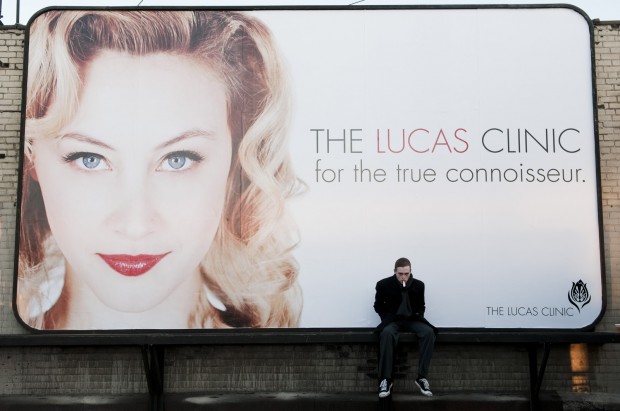
Where did the idea behind that story come from?
It was in 2004, I had just started film school and I got very sick. I was obsessing over the physicality of my disease, it was semi-delirious and the fact that there was something physically in my body that came from somebody else’s body…it was a weirdly intimate thing, if you think about it that way.
Oh wow, yeah I’ve never thought about it that way.
*Laughs* Really? Yeah, the virus that infects you was actually born in the cells of somebody else and they are transmitted to you and penetrate you, your cells. So, you know, it’s totally intimate and erotic if you think about it that way.
Yeah, that’s a really interesting way to think about it… and kind of gross!
*Laughs* Or kind of enjoyable, depending on what you’re in to…
I can see why you got that idea then, it’s crazy obsessive to want to be ill with someone else’s disease because they’re famous.
Yeah, I guess I was just trying to figure out a character that could believably see disease as something intimate. A celebrity-obsessed fan, you could imagine they would want to feel that connection with someone, if they looked at it that way.
Would you say the film was a warning about celebrity culture and the direction it’s heading in?
Well, it’s more satirical than predictive and it’s only a slight exaggeration of what’s already going on. The idea was to create a cultural caricature that takes what’s there and exaggerates it just slightly to counteract, I guess, our habituation to it and mock it in a humorous way.
Do you think there will ever be an end to celebrities and excessive fans, or is it here to stay and is just going to evolve and get worse?
I think it connects to an older human impulse. I don’t think celebrity culture, in its current form, is something that’s new and is just picking up steam. I think the industry of celebrity is becoming a lot more insular and it’s having less and less to do with any form of accomplishment. People become famous for a very short period of time through reality television or other means, and their job is just to be famous for a little while and people make a lot of money off them. I think celebrity itself is an older thing, I mean if you look at Saints, they’re like modern-day celebrities in a way, and they’re elevated practically to the status of Gods. You know, there’s the iconography, their images are everywhere and they have a sense of significance for people. There’s the same physical fetishism, you know, churches claim to have the finger bone of such-and-such thing and that’s seen as being somehow powerful. I think it’s something that we tend to do as people and we’ll probably continue to do as people, even if it isn’t in the same form as it is now.
What do you think about people who become famous and don’t have any talents; who are just famous for being on reality TV? Those who have tonnes of money and a high status because of their fans.
Well, I don’t think fame is really something that you deserve or don’t deserve. There is a line in the film that a character says, “Anyone who’s famous, deserves to be famous.” I actually believe that and in a sense, fame is not an accomplishment. I don’t think ‘celebrity’ is inherently bound to accomplishment. There are people who are famous for doing nothing and there are people who do incredible things and never get famous for it. I think we sometimes cling to this illusion that somehow fame is a deserved thing and it’s somehow bound to some kind of accomplishment; that someone must be worth it. The reality is if someone is visible to the point where it hits this critical mass and then people recognise them and obsess over them. It’s not a question of, I think, deserving that. If you achieve that, it’s because people are giving it to them.
So, would you say that fame is triggered by fans more than talents and accomplishments? That personality and looks are probably the most important aspect of being a celebrity?
Well, it’s not that I think that’s more important than anything else. It’s not very important, what you do is far more important than how famous you are, but at the same time I just think that becoming famous doesn’t have anything to do with what you do, necessarily. If for whatever reason enough people recognise you, then you’re famous and that’s it. The idea that that’s somehow bound to an accomplishment, or should be, or ever was, is an illusion.
So, going back to your film, it has a really great cast especially with your main character who is played by Caleb Landry Jones (X-Men: First Class, Contraband), was he always first choice for the lead role or did you have other people in mind?
I’d seen him in X-Men but I didn’t really know him that well or know his stuff that well until we started looking around for actors. When I saw his stuff, and his agent had worked with my producer on a previous film, we were talking about who might be good. We saw his material and the auditions he’d done for other films and we were all immediately excited because he had that special thing actors have where they’re incredibly fascinating to watch, even if they’re doing something mundane. There’s something about the way they do it and the intensity in the physicality of their acting that keeps it interesting. He needed that because he’s going to be on-screen constantly and because of the disease, there was this deterioration; he needed to be a nuanced physical actor. Yeah, we were really excited as soon as we saw his work.
He definitely has a very distinctive look and you can see his deterioration very well in the film. I couldn’t imagine someone else in the role now because he suited it so much.
I can’t anymore either and I think that’s the mark of a good actor. I mean, he isn’t what I had in mind when I was writing, but now I couldn’t see it any other way. He’s much better than what I had in mind. *Laughs*
Did you encounter any difficulties making the film, or was it all smooth-sailing?
Yeah, it was all very difficult! There wasn’t one particular thing that put the production in danger…but it was all hard.
What do you want audiences to take from Antiviral? What do you want them to come out of the cinema, or finish the DVD, thinking?
I don’t know. I get that question quite a lot and I never know how to answer it to be honest.
I suppose you don’t think that far. You write a story and turn it into film and hope for the best?
*Laughs* Well, I think about audiences reactions a lot. It’s not really that there’s one specific thing that I’m going for. Again, it’s satirical and it’s meant to be critical of that culture, but I’m hopeful there’s enough in it that people can get a lot of different things from it.
I think the best thing about the film is that it’s a horror film but it doesn’t go down the typical route many horrors tend to. There’s no ghosts, cheap scares or any monsters in it. It’s scary in a completely different way. Was that always something you had in mind – to steer away from horror expectations?
No, I never really think about genre when I’m working so I didn’t really know it was a horror film until about half-way through it and we started putting blood on everything and I thought, “Oh, it’s a horror film.” *Laughs*
I think that’s a good thing because I’m sure many directors go in and think “I want to make a horror film” or a particular genre, so they throw in what audiences have come to expect and then it just becomes predictable or something you’ve seen before. How important was the music choice in Antiviral? The music has kind of stuck with me.
Oh, it was very important. I’m glad that you liked it and it’s actually getting a soundtrack release which I’m very excited about. Music for that kind of film is incredibly important and my composer (E. C. Woodley) was extremely brilliant and we had a great collaboration. I was very involved with that process, but he was also a great composer. It was a wonderful experience.
So, what are you going to do next? Are you already planning another film?
Yeah, until recently I’ve been doing a lot of promotion for Antiviral so I haven’t really had time to settle back in Toronto. I started writing again, but I’m not sure what it’s going to be. It’s a little unformed at the moment, but yeah I’d love to make another film.
Do you see yourself staying within this genre…I know you don’t think about it but can you see yourself making a romantic comedy?
I think this is a romantic comedy. *Laughs* I don’t know…I guess I’ll just keep writing about what I like and see what happens…
Antiviral is now available on DVD in the UK and is being shown at this year’s Bilbao Fant Festival on Sunday, May 5.

